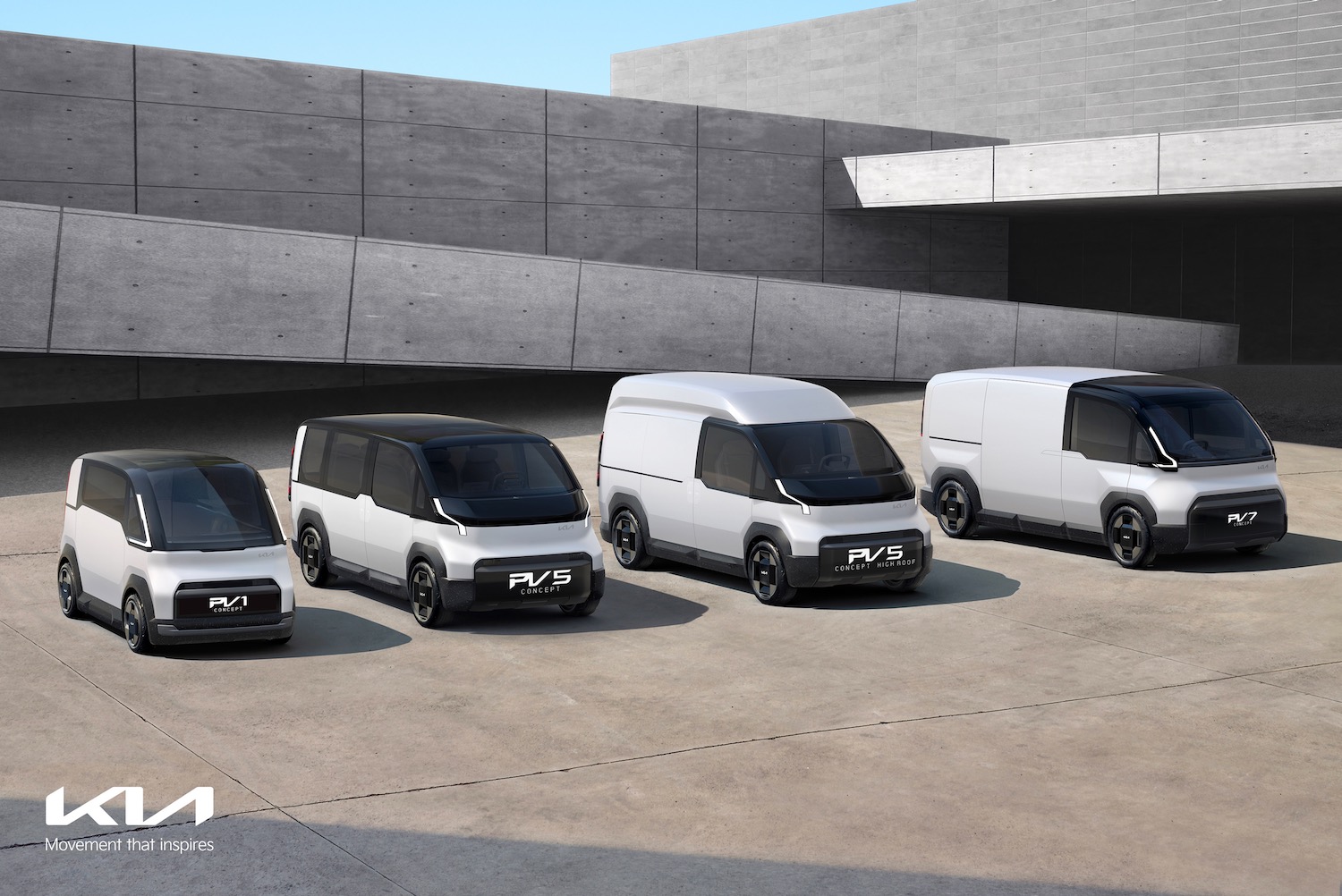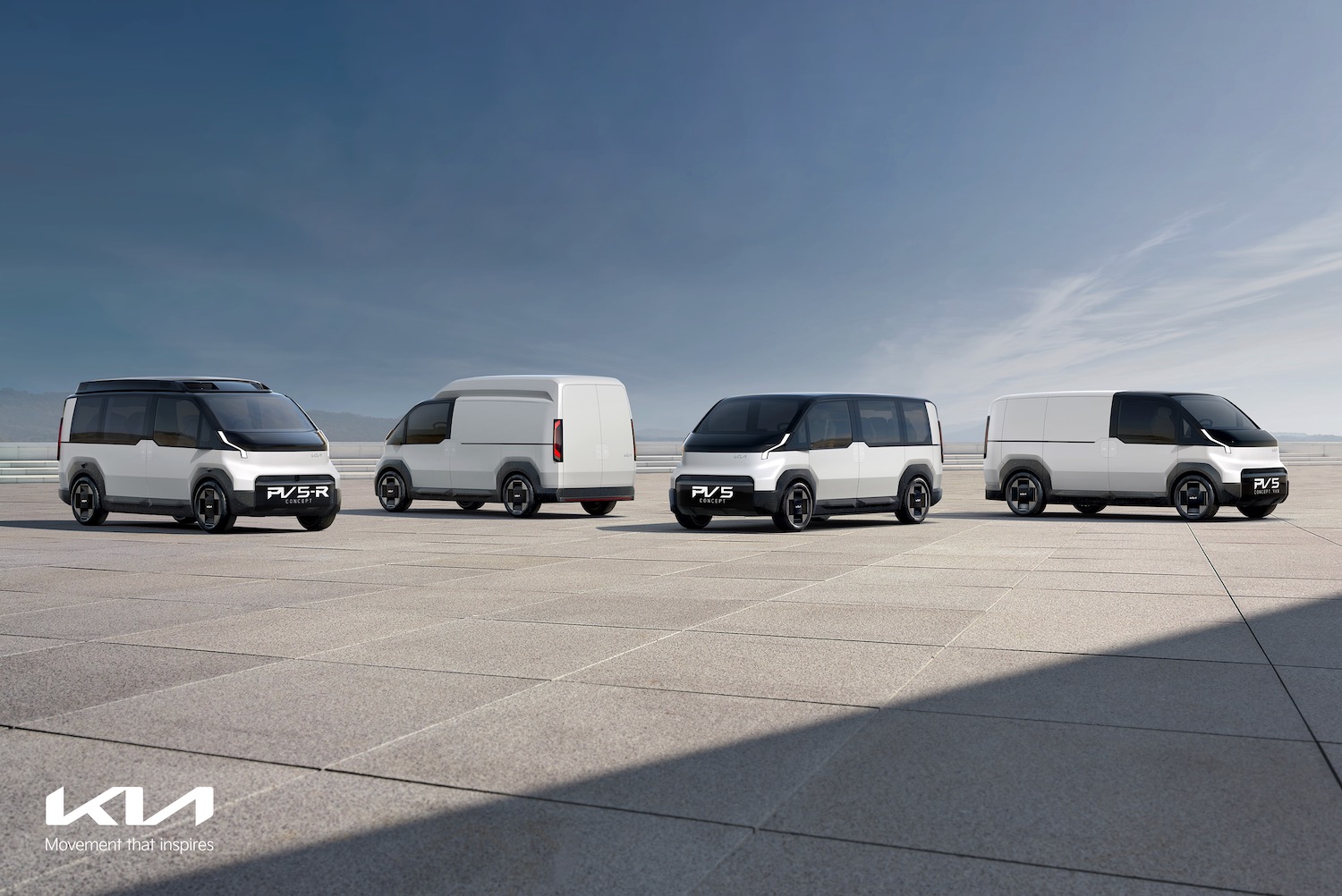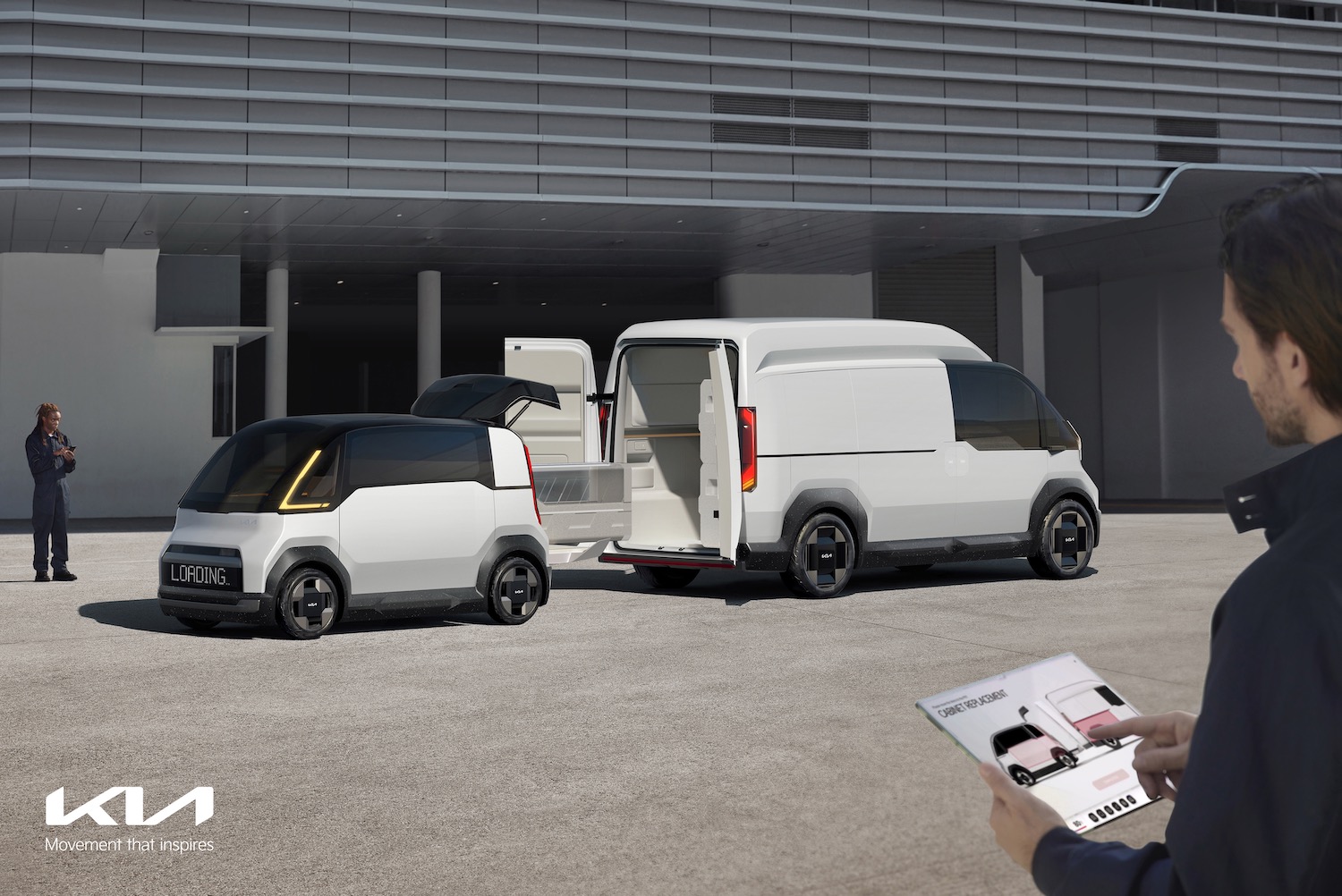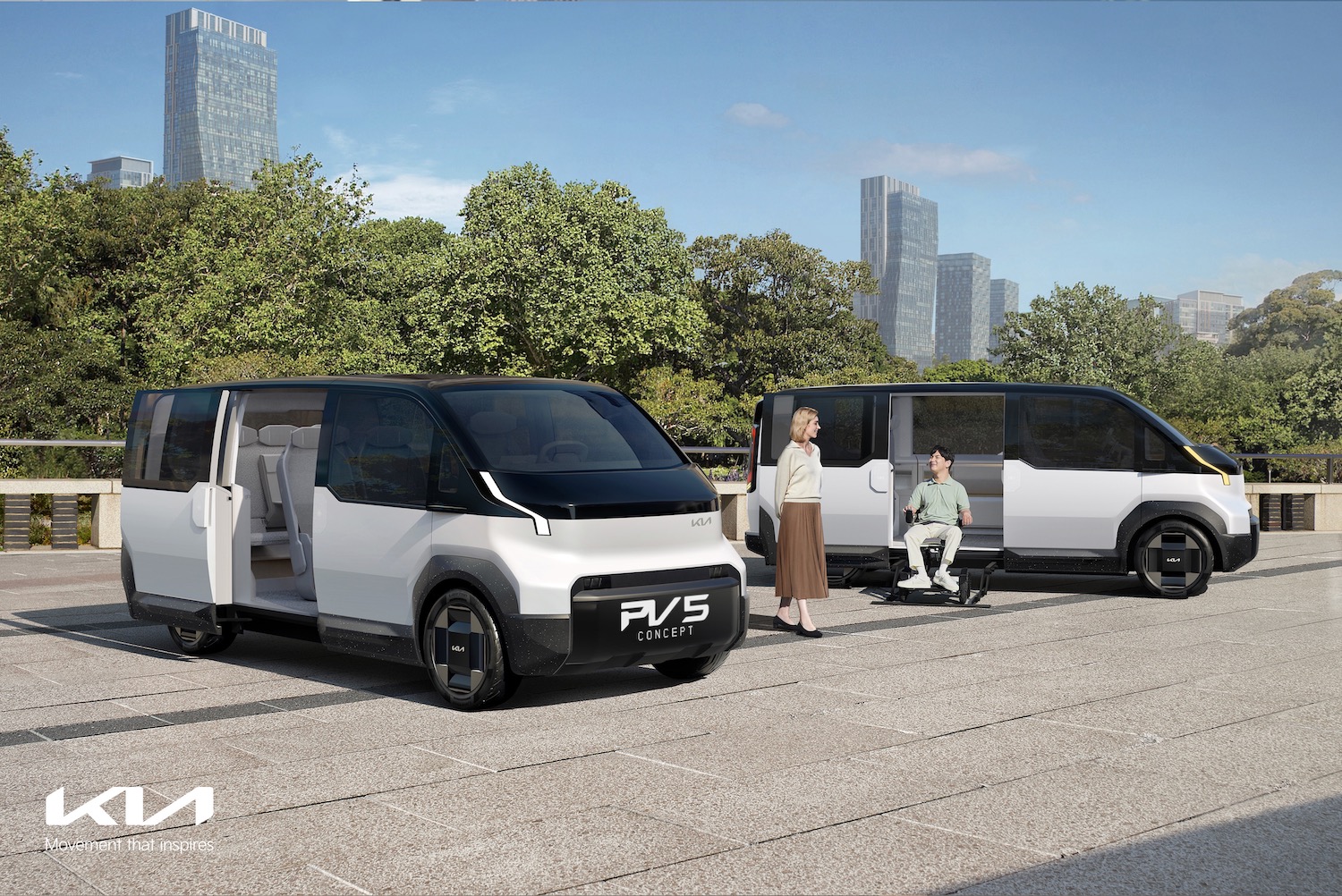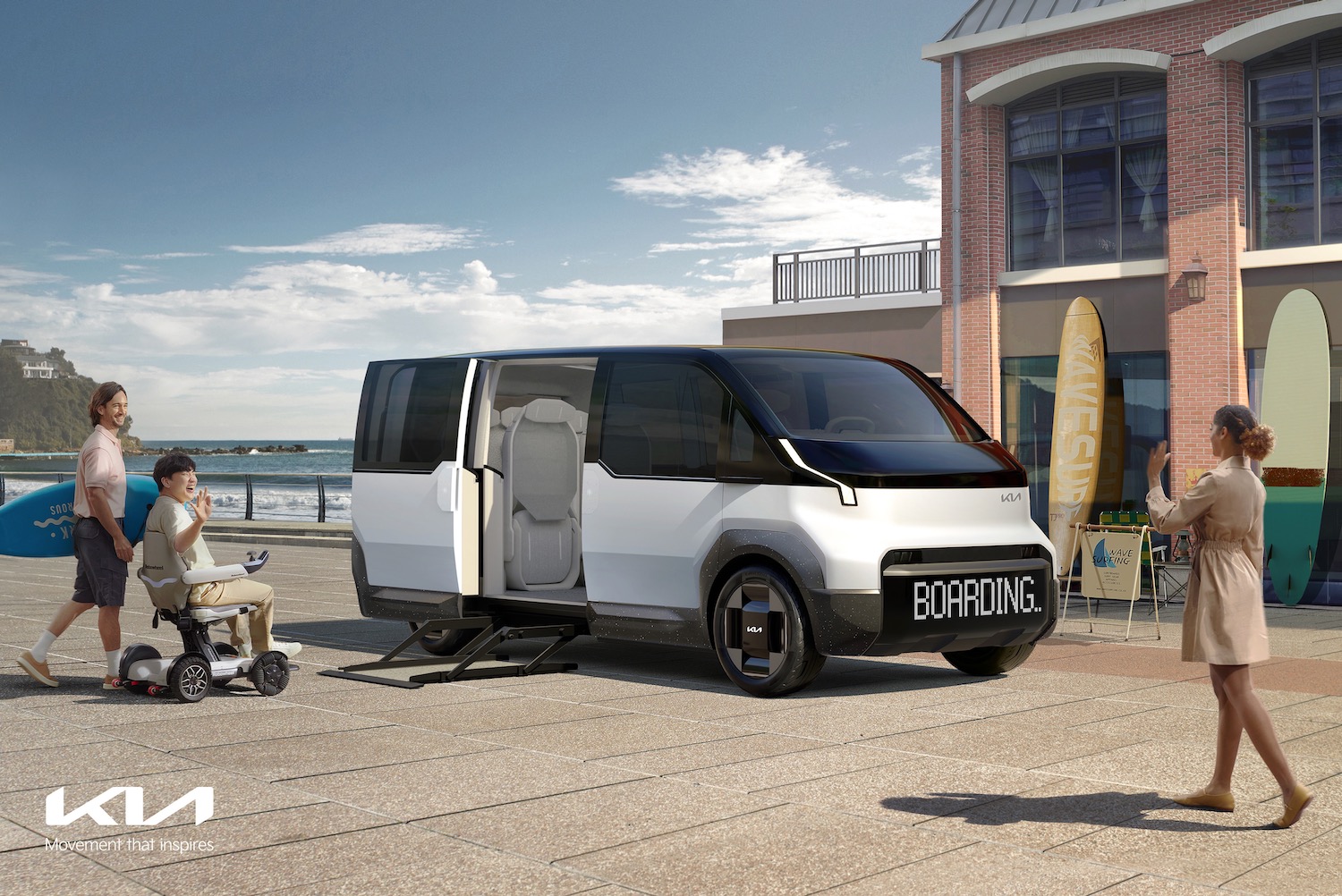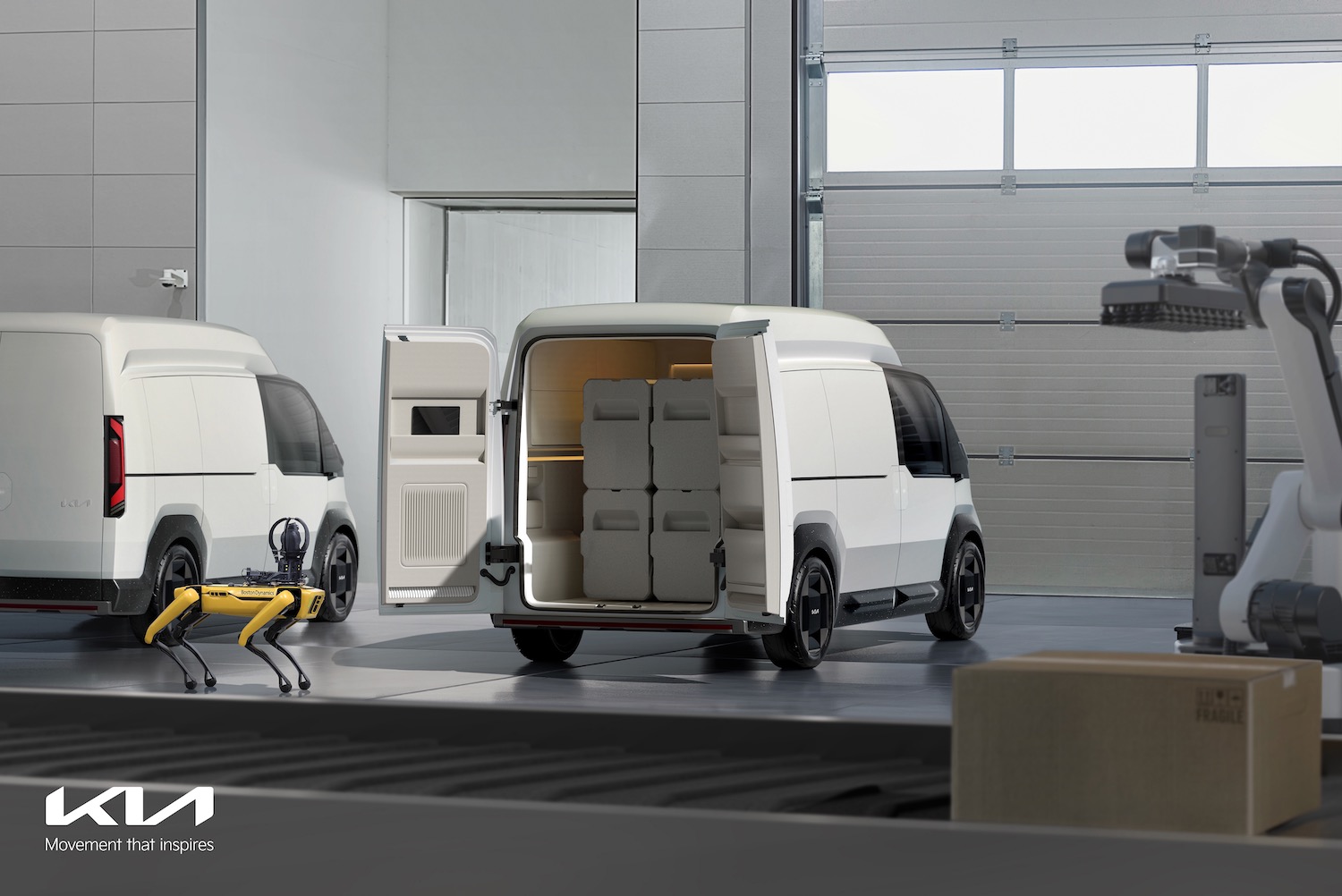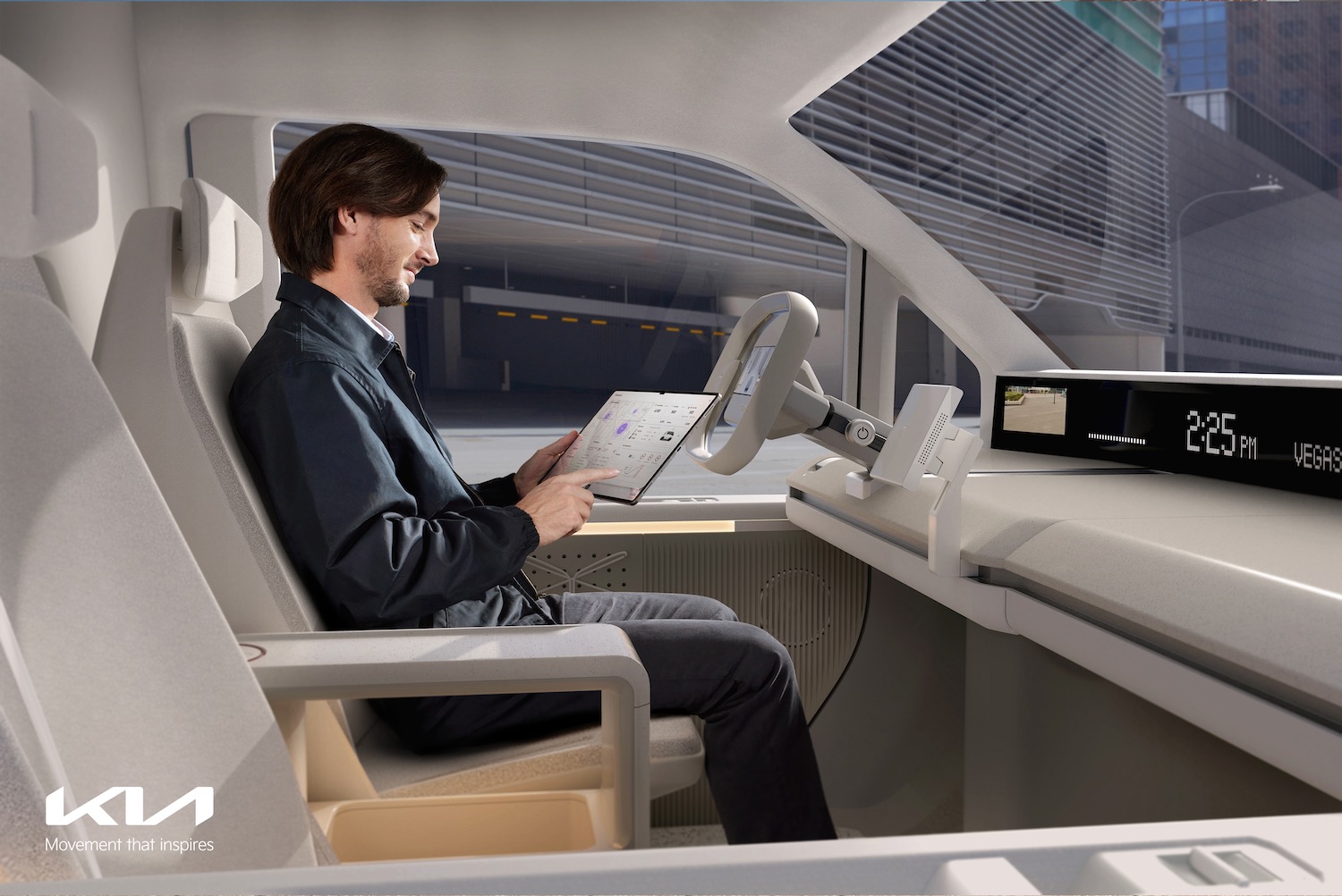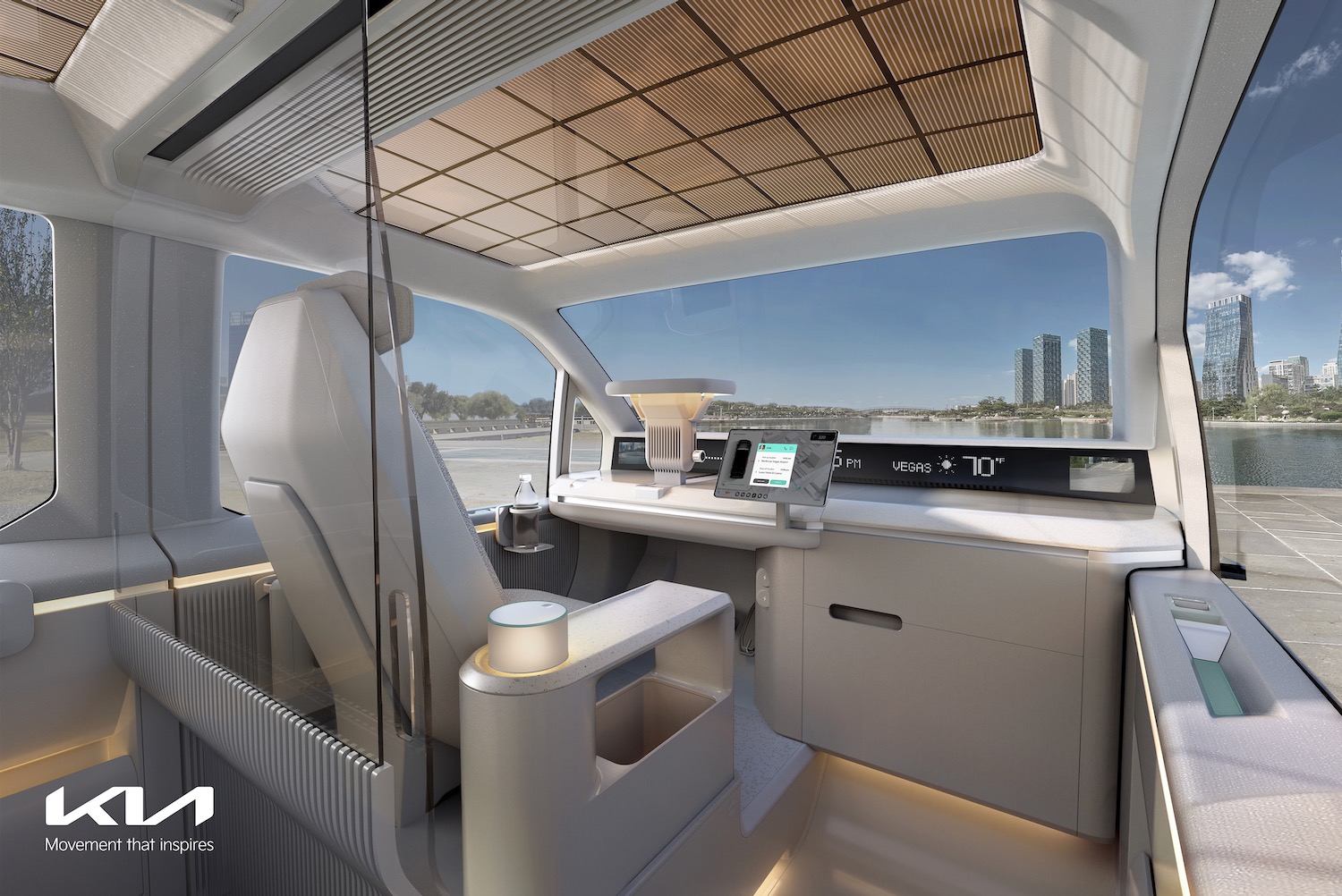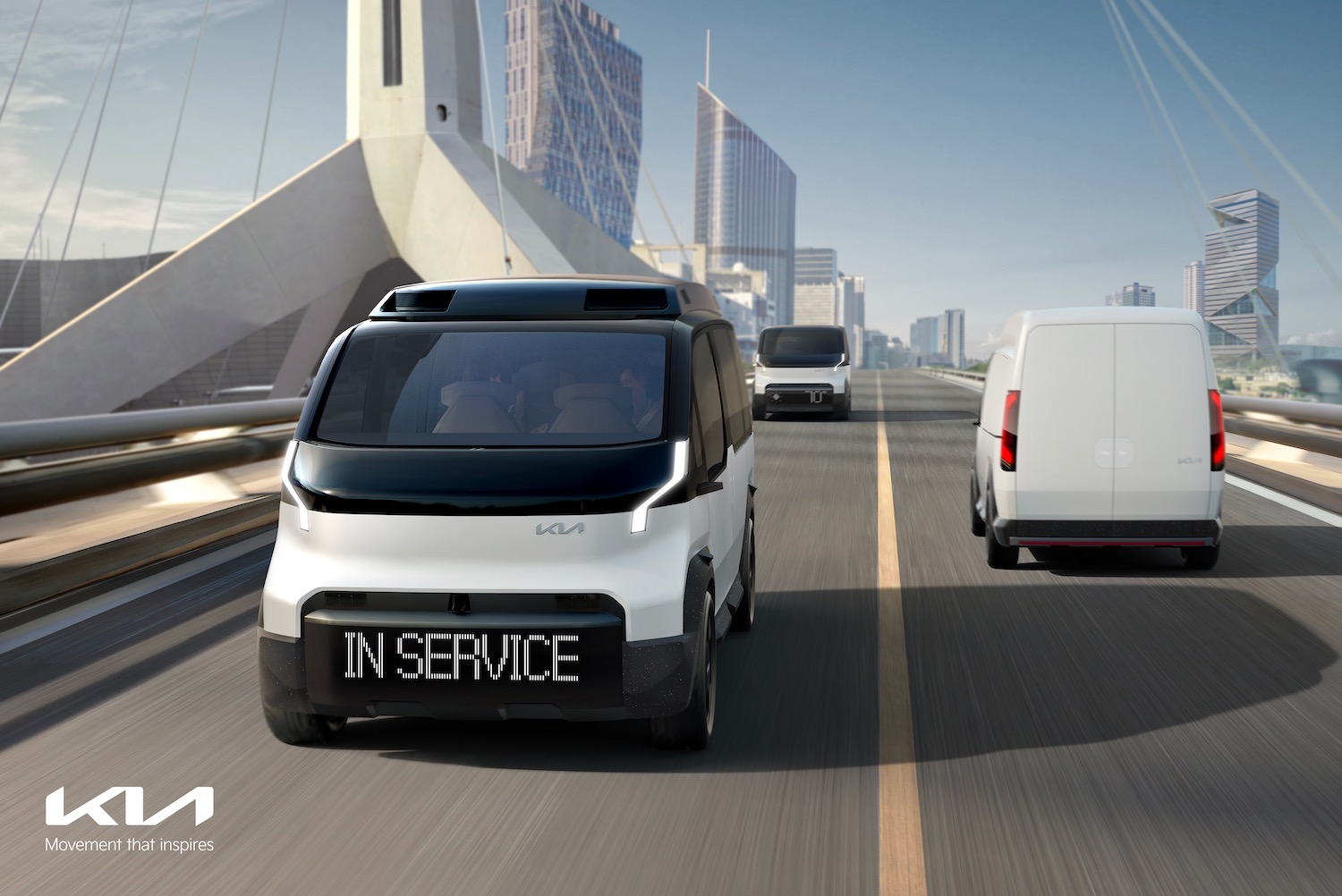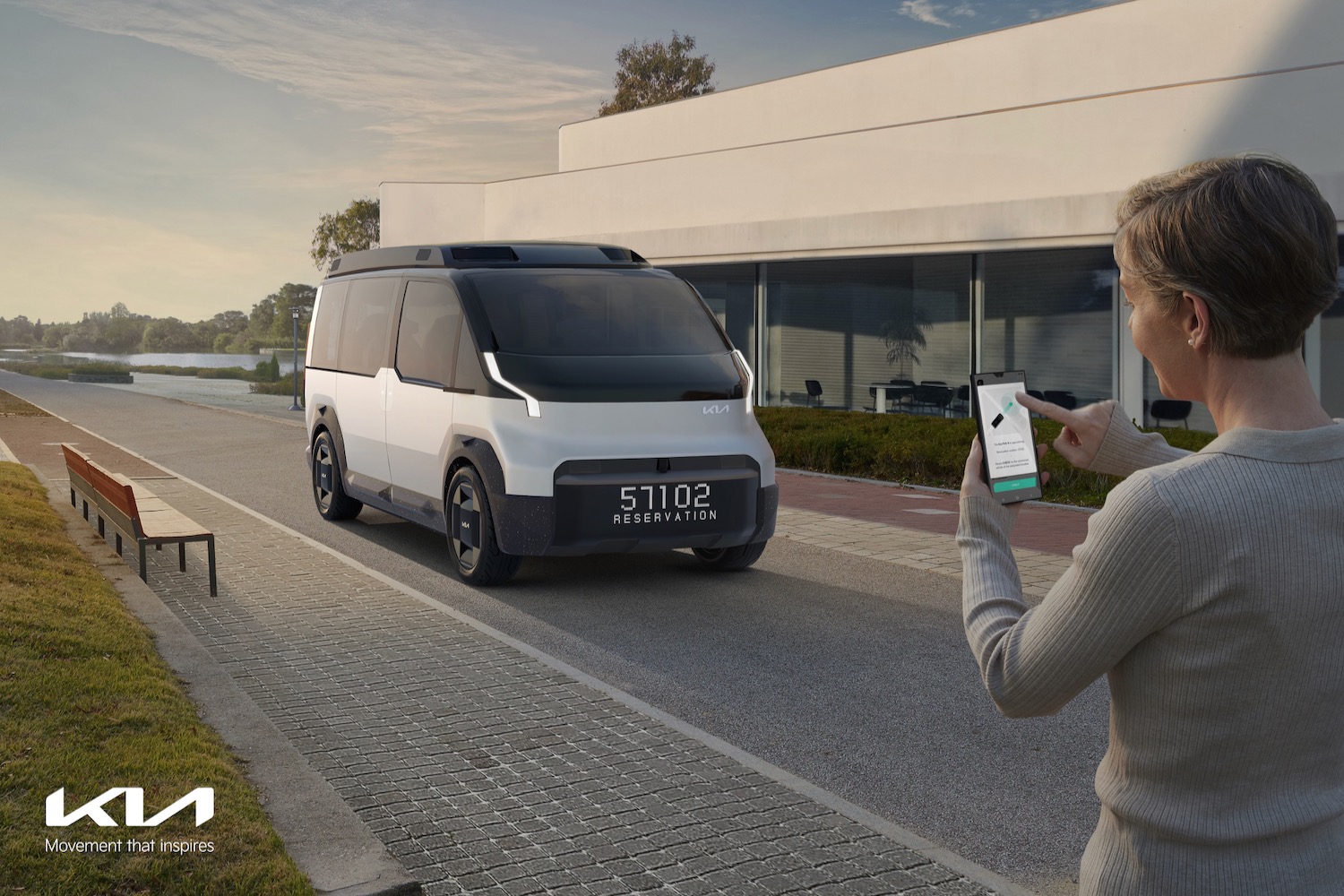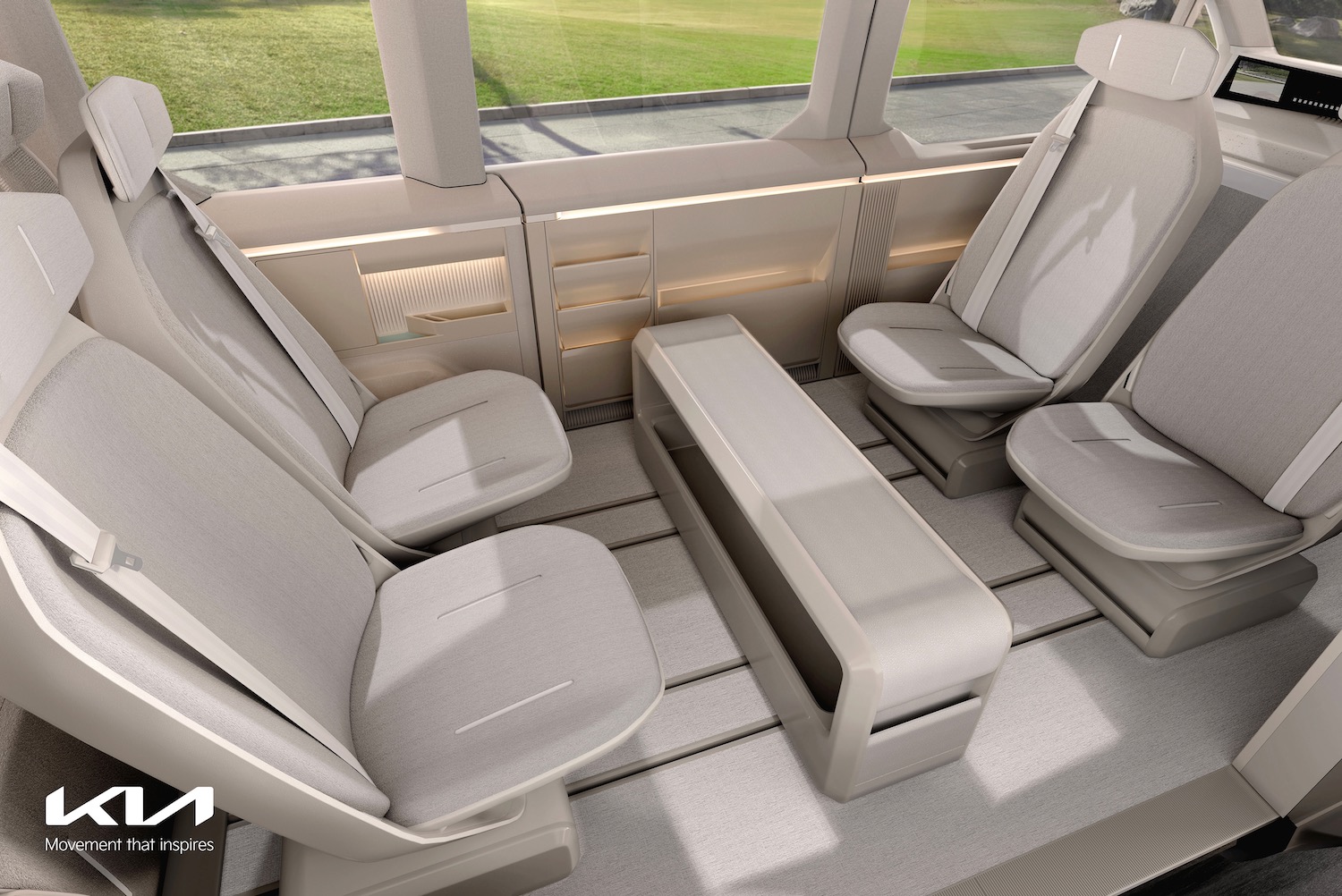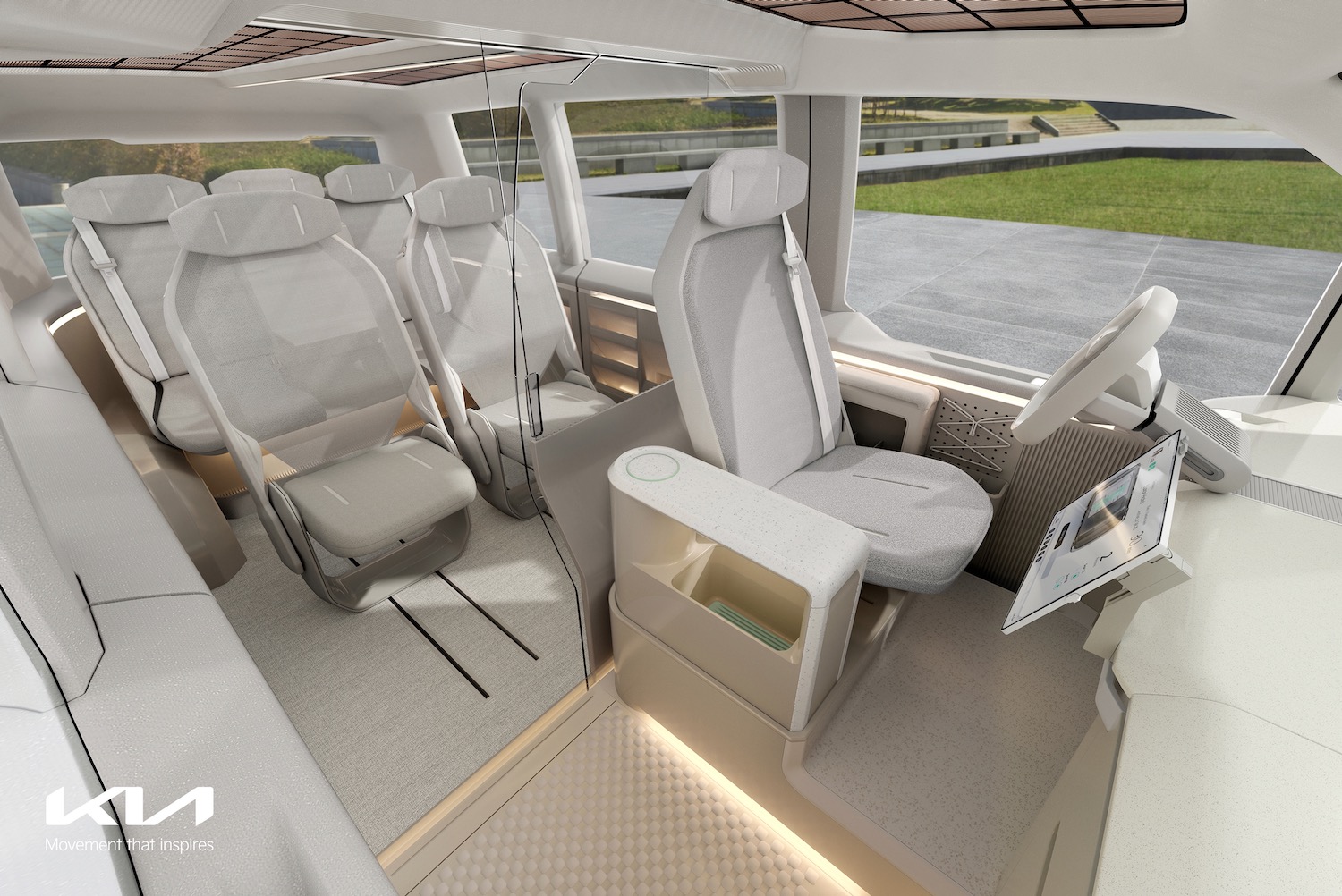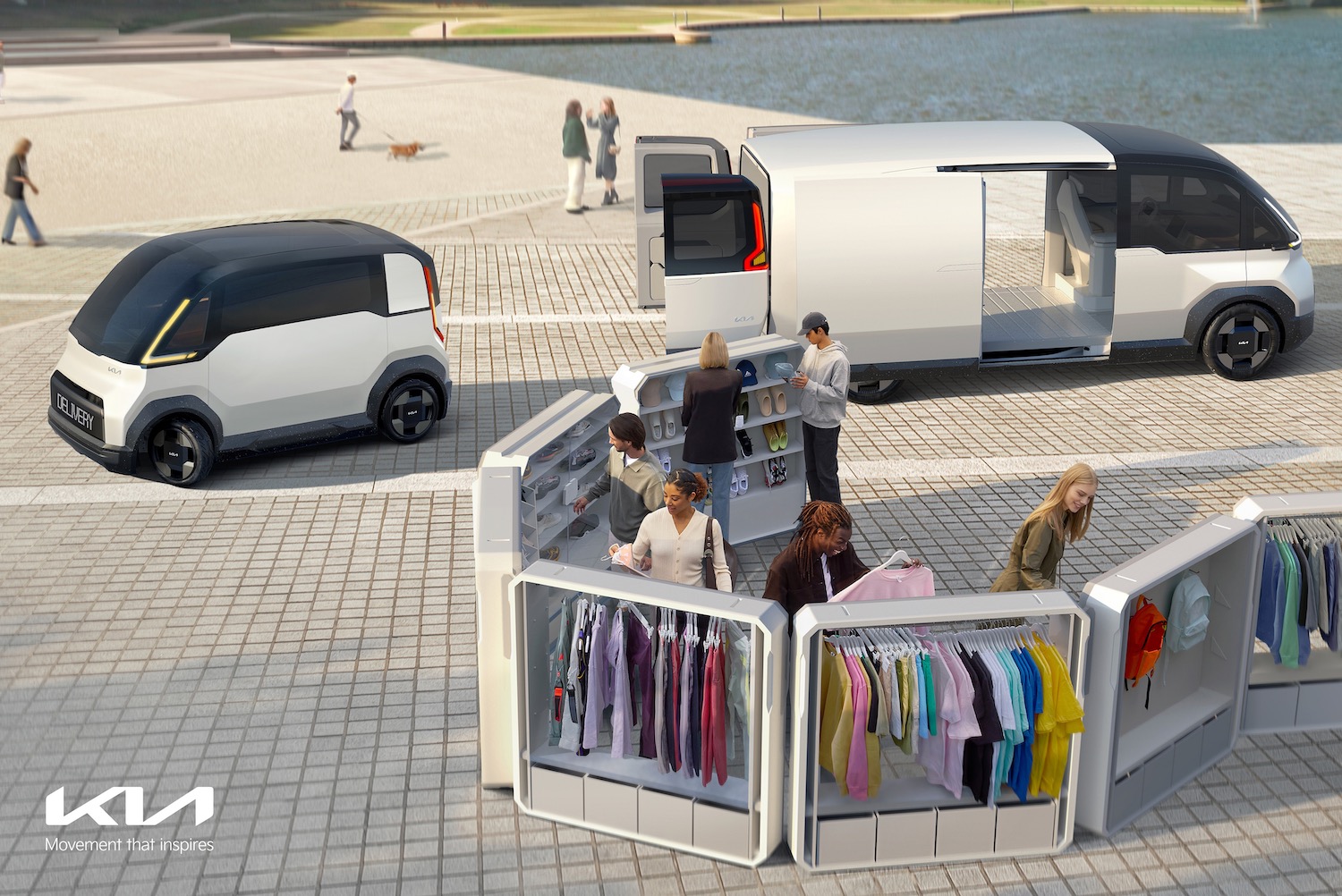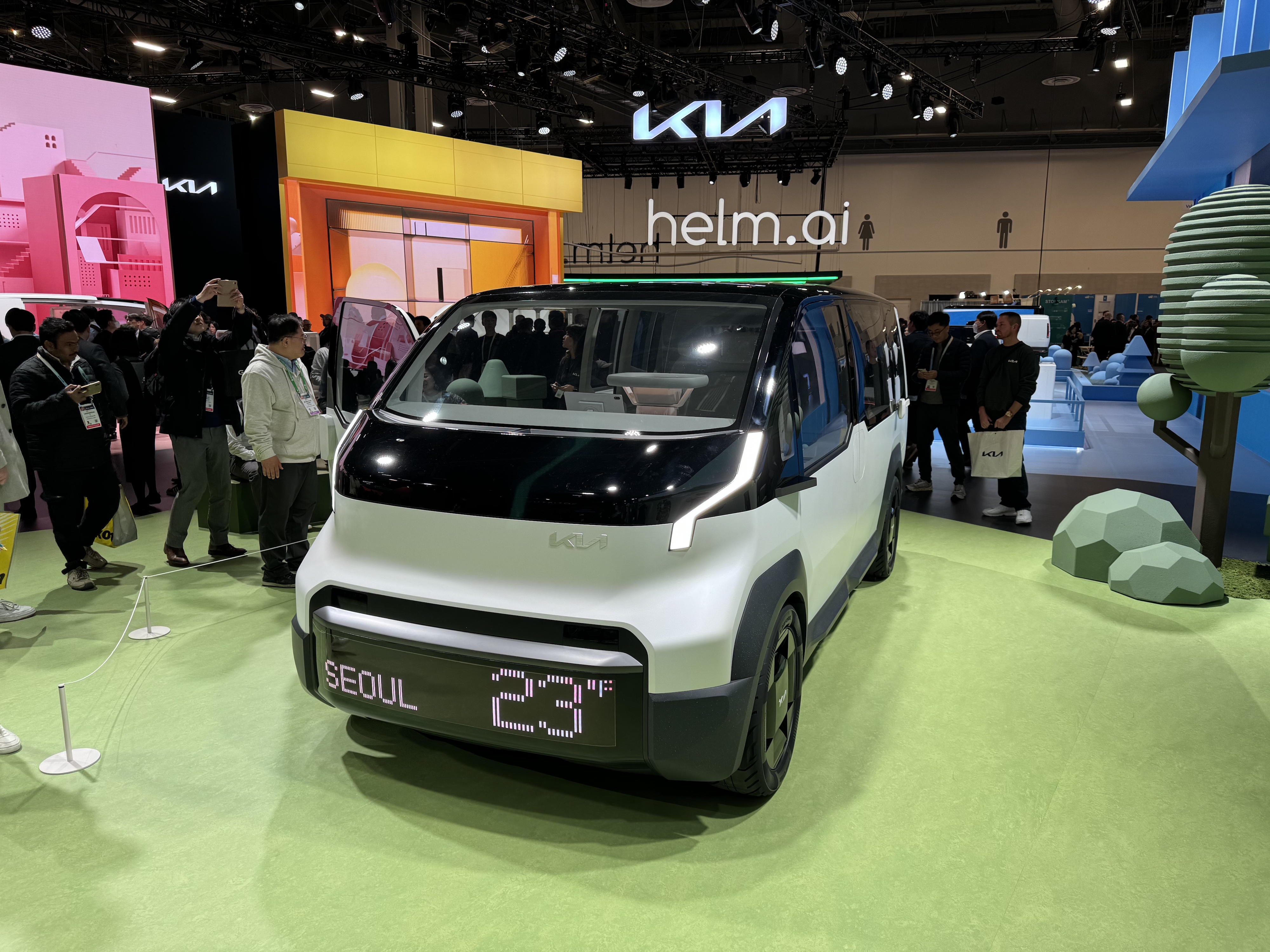
Kia wants to build EVs that can be easily reconfigured for different uses, ranging from ordinary passenger cars to taxis and delivery vehicles. The automaker previewed this strategy, called the Platform Beyond Vehicle (PBV), at CES 2024, showing the first potential vehicle designs.
All PBV derivatives will be based on a modular platform with a fixed cab, but all bodywork aft of the cab will be interchangeable, allowing the same vehicle to serve as a taxi during the day, a delivery van at night, and a personal car on weekends, Kia says. If this sounds familiar, it’s because Kia first mentioned the PBV strategy in April 2023, but at that time, the acronym stood for “Purpose-Built Vehicle.”
The rear bodywork, which Kia calls the “life module,” is connected to the chassis via electromagnetic and mechanical couplings. These modules will be shipped in kit form and designed to be easily assembled outside a factory setting. Kia says they’ll incorporate features like large doors to make ingress and egress easy, adding that the basic EV platform creates a large flat floor ideal for stowing cargo.

At CES, Kia showed the Concept PV5, previewing the first planned PBV production model. Kia plans to offer “basic,” van, high roof, and chassis cab configurations, as well as a self-driving version for a planned autonomous ride-hailing service from Motional, a joint venture between Kia parent Hyundai and autonomous-driving tech firm Aptiv.
The PV5 will be followed by a larger model called the PV7 and a smaller model called the PV1. They’ll be built at a dedicated factory in Hwaseong, South Korea, that’s scheduled to open in 2025 and will be able to build 150,000 vehicles per year, according to Kia.
In addition to the vehicles themselves, Kia hopes to create an aftermarket ecosystem of accessories that can be mounted on a standardized rail system built into the ceiling, floor, and side panels of the vehicles. According to Kia, this can accommodate everything from cabinets and shelves to speakers, and the automaker plans to contract with conversion shops in different markets to install them. There will also be bundles of software, including fleet management systems for the commercial operators likely to use the PBVs in their delivery van, taxi, and autonomous ride-hailing configurations.
The multiple body styles, range of accessories installed by third-party firms, and fleet-management software all seem borrowed from the commercial van market. But commercial vans also seem like a better model for the delivery vehicles and ride-hailing of the future than the hodgepodge of sedans and SUVs doing the majority of Uber or GrubHub runs today.
Editors' Recommendations
- Fake engine noises in electric cars need to die
- Mercedes’ electric eSprinter isn’t just greener, it’s better
- Honda previews future EV lineup with Zero Series concepts
- Cadillac aims to balance its lineup with a small electric SUV
- The Lucid Gravity has more range than any other electric SUV

